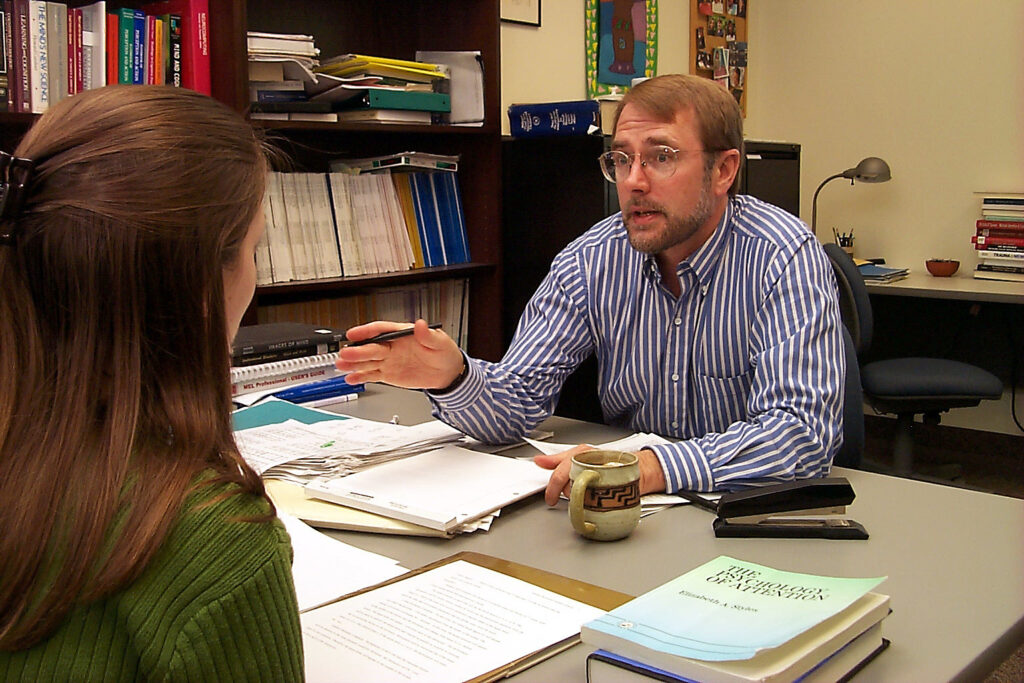Teacher-Scholar Legacies: Dale Dagenbach

By Christy Buchanan, Chair of Psychology

Dale Dagenbach has been a faculty member at Wake Forest since 1990, for a tenure of 34 years. He has been a steady and wise presence in the Psychology Department and Wake Forest over these years, and he has also been an essential contributor to the Neuroscience programs on the Reynolda campus and at the School of Medicine.
Dale’s scholarly contributions lie in the domain of cognitive psychology, especially the understanding of attention and executive functioning, and brain mechanisms associated with attention and memory. His research has addressed important issues in cognitive science, including the impact of cognitive training on attention among older adults and methods to best study brain function. He has published and presented his work widely. He won Wake Forest’s Excellence in Research Award in 1995. He is a Fellow of both the Psychonomic Society and the Association for Psychological Science.
Dale has been an attentive and responsive teacher and mentor to many undergraduate and graduate students. He has generously mentored colleagues as well, as described in the following: “I have highly valued Dale’s perspectives on guiding the research questions my students and I have explored. Dale’s questions and suggestions have shaped my thinking … and pushed my students and me in new directions. He has been a sounding board for my research ideas as well as a mentor for professional development.”
Dale has served the department, the university, and the profession extensively. He has been a reliable colleague in the department, always willing to step up where needed. He served as the Director of Graduate Studies in Psychology, as well as department chair for two terms, during which he was proactive in supporting the development of department faculty as teachers, scholars, and leaders. He has been a member of – and often rose to leadership roles in – many College and University committees and professional organizations. For example, he had tenures chairing the College’s Institutional Review Board, the Committee on Academic Planning, and the University Grievance Committee; he also served as Treasurer and Board member of COGDOP, a professional association for chairs of psychology departments with graduate programs.
His colleagues remember him as an effective leader whose calm, thoughtful, and approachable style put others at ease. As chair, he welcomed input and dialogue. In the words of one colleague, he “created an atmosphere where disagreement was neither stifled because of its potential impact on harmony nor was likely to lead to anger or conflict.” Another shared that “he put a number of policies and procedures in place that fostered collaboration.”
Dale made the psychology department a better place not only through his work but through his personal connections. He cared for colleagues in his quiet and unassuming way, hosting new colleagues for dinner, providing colleagues with meals (e.g., “the most delicious, nutritious, and colorful salad”) and caring for their older children when those colleagues welcomed new babies into the world, and noticing and expressing gratitude for otherwise unrecognized work. He participated in friendly Summer Olympic, foosball, and pickleball competitions. In sum, “he taught me that one can have a profound impact without fanfare, through quiet and steady commitment to one’s values, and caring for others.”

